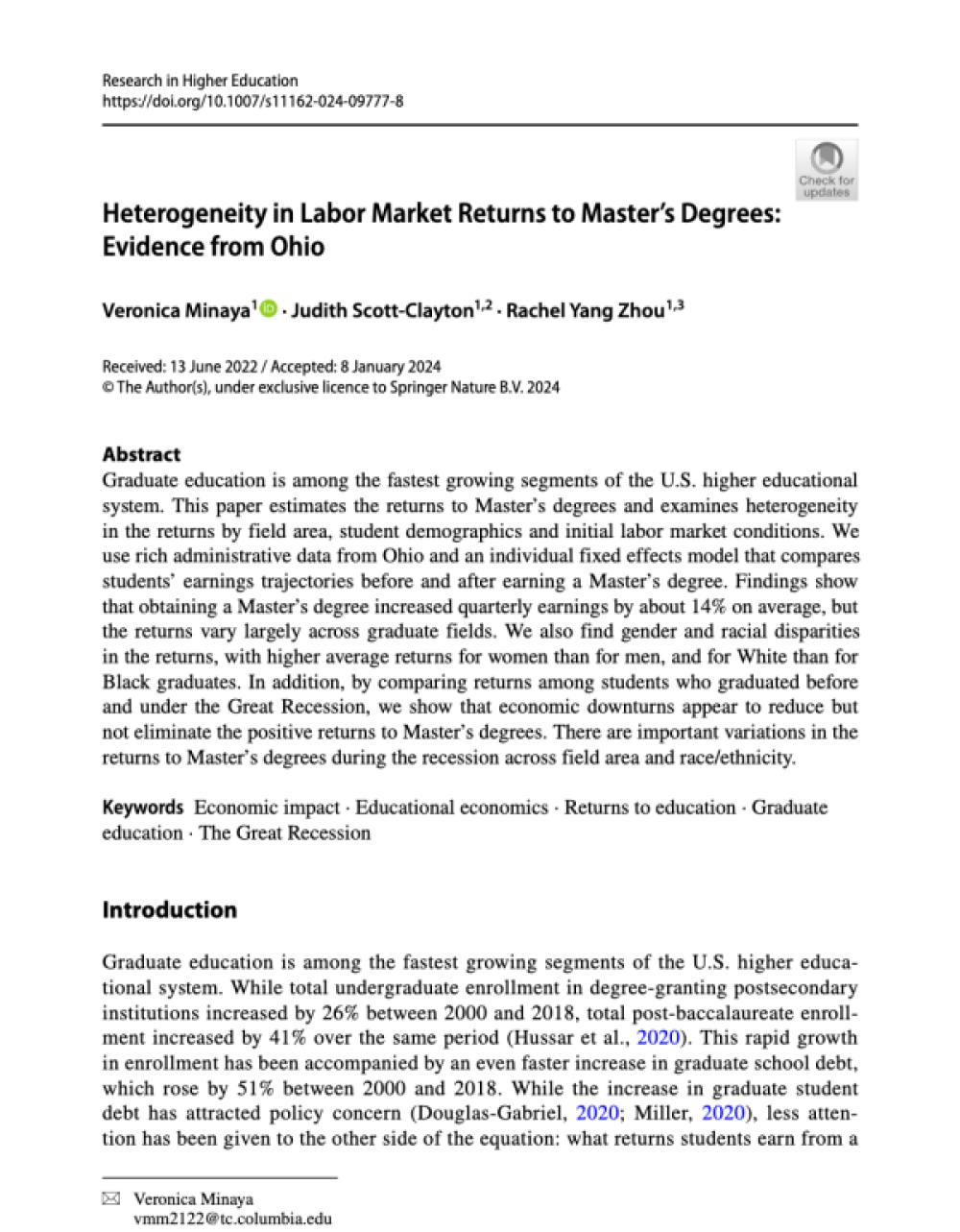
Graduate education is among the fastest growing segments of the U.S. higher educational system. This paper provides up-to-date causal evidence on labor market returns to master’s degrees and examines heterogeneity in the returns by field area, student demographics, and initial labor market conditions. The analysis uses rich administrative data from Ohio and an individual fixed effects model that compares students’ earnings trajectories before and after earning a master’s degree. Findings show that obtaining a master’s degree increased quarterly earnings by about 12% on average, but the returns vary largely across graduate fields. The authors also find gender and racial disparities in the returns, with higher average returns for women than for men, and for White than for Black graduates. In addition, by comparing returns among students who graduated before and under the Great Recession, the authors show that economic downturns appear to reduce but not eliminate the positive returns to master’s degrees.
A version of this paper appears in Research in Higher Education.
